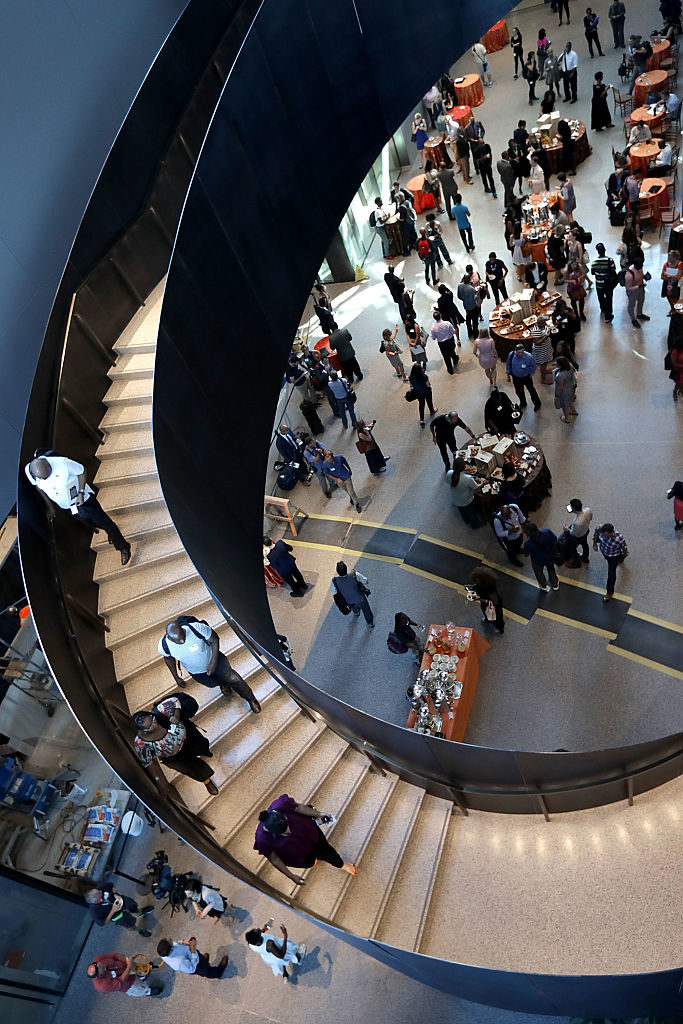Art World
Good Luck Getting Into the National Museum of African American History and Culture Before Winter
The museum has extended its hours to keep up with popular demand.

The museum has extended its hours to keep up with popular demand.

Rain Embuscado

If you haven’t already booked a visit, you’ll have to wait until at least November to see the inside of the National Museum of African American History and Culture (NMAAHC) in Washington, DC.
According to the Washington Post, every single one of the free 28,500 timed passes arranged for the museum’s opening weekend were snagged within the hour. For now, weekend tickets are sold out until December 23.
To accommodate the demand, the NMAAHC has extended their hours on opening weekend to 8 p.m. on Saturday, September 24, and to midnight on Sunday, September 25. It has also extended their hours to 7:30 p.m all throughout the opening week of September 26–30.
The museum has divided its 400,000-square-foot-space into distinct exhibition sections arranged by themes, including “The Era of Segregation,” which features images of civil rights leaders and accompanying documents; and “Beyond 1968,” a show that tackles black American history from the year Reverend Martin Luther King Jr. was assassinated to the present day.
Coverage of the Smithsonian’s new museum has been aplenty in the months leading up to its inaugural ceremony next Saturday, September 24. The New York Times has taken every conceivable angle in the book—and then some—reporting on everything from the entangled history that drove the museum’s success, to a full review of what works (and what doesn’t).
Ahead of the opening, which president Barack Obama will attend, a handful of guests have already been invited for an early viewing of the building. The hashtag #APeoplesJourney is gaining traction on Twitter, as more visitors sneak peeks at the show.
Though plans of a more thorough walk-through may need to wait a bit longer (the museum is open year-round with the exception of Christmas day), there’s always the Internet to offer us a peek into what’s in store. Take a virtual tour in our gallery slideshow above.